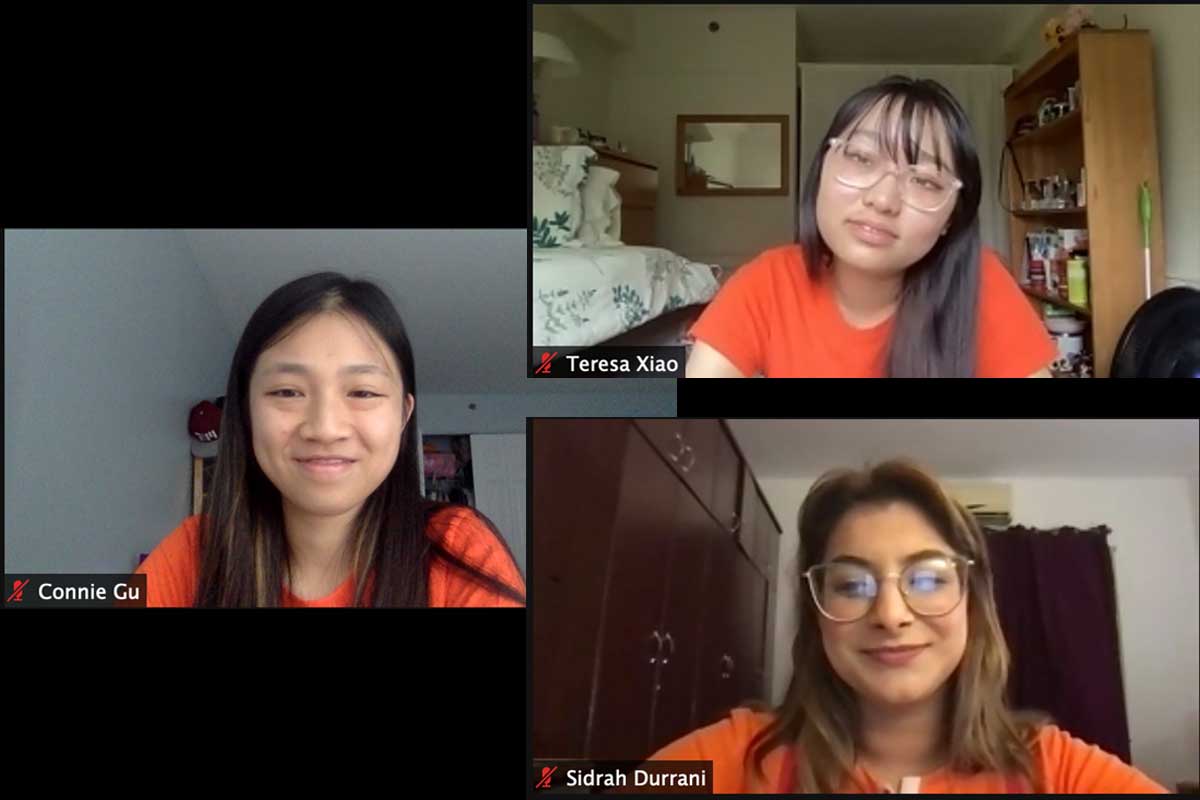
Digital communication systems, such as social media platforms, are created for the masses but aren’t often designed for a large scope of their user base: adolescent girls from marginalized communities. The Youth, Media & Wellbeing (YMW) Research Lab, in collaboration with the Computer Science Department at Wellesley College, holds an annual summer workshop for adolescent girls to explore STEM learning spaces and become designers and creators of their own digital communication systems. (This year’s workshop ran July 11-15.)
As research interns from different educational backgrounds, we all contributed our unique expertise to last year’s summer digital wellbeing workshop. We were mentored by Dr. Linda Charmaraman, director of the YMW Research Lab, and Dr. Catherine Delcourt, assistant professor of computer science at Wellesley, to explore research on human-computer interaction (HCI), specifically on participatory design and positive social media use with middle school girls. At the end of an exciting and fast-paced summer, we published and presented our work—titled “Innovating Novel Online Social Spaces with Diverse Middle School Girls: Ideation and Collaboration in a Synchronous Virtual Design Workshop”—at CHI 2022, an international HCI conference.
The aim of this participatory design workshop was to engage middle school girls in social media innovation, digital wellbeing, positive social media use, STEM identity exploration, collaboration, and computational design. Conducted virtually over four days, students were divided into small groups of three or four, grouped by age, with an assigned facilitator.
The idea generation and collaboration sessions were very fun to be involved with, especially as we watched students envision unique positive spaces online. Their ideas included an application that uses a robot to monitor and filter out negative messages, a music-based application to spread kindness, and a simulation game to develop interests and explore career paths for teenagers. Students also showed a great interest in climate change activism, spreading positivity, finding friends and peers from their neighborhood, and building a large community of like-minded individuals. They often took initiative during this time to develop prototypes and sketches.
Overall, we noted how important it was to maintain a positive and uplifting environment for the students in the workshop, which through our experience, allowed everyone to feel more comfortable with one another and share personal anecdotes with the group. We observed individual trajectories of growth through the four-day workshop and were keen on exploring our findings regarding intentional collaboration and facilitation with underrepresented middle school girls.
As research interns, we gained a lot of insight and experience being involved in the workshop, from curriculum development to report writing to the conference presentation.
It was also an interesting experience for us, as researchers and facilitators, as we became the workshop participants’ peers and mentors during the process. Stepping out of the research mindset we had while preparing the curriculum for the workshop, we were doing virtual field work by interacting with the adolescents to understand their conception and opinions of social media and STEM. This process allowed us to get to know the participants personally and join their efforts to co-design a novel and positive social online space.
To discuss our experience with the workshop and the process of publishing our paper about it, we presented at the Tanner Conference at Wellesley College and the hybrid CHI 2022 conference, during which we presented our research to HCI experts.
We were so honored to be part of such a great team and are excited to see the impactful results of this workshop in the coming summers. As research interns, we gained a lot of insight and experience being involved in the workshop, from curriculum development to report writing to the conference presentation. We all continue to engage in the research and provide input on the upcoming summer workshop through the YMW Youth Advisory Board, which allows us to test-drive activities with past workshop participants and facilitators aged 12-23. This summer, Dr. Delcourt is working with Connie to develop a facilitator training based on last year’s experience and previous research. Being involved with this workshop has helped us explore personal interests, given us the opportunity for new experiences, and taught us the tools of the trade about the research process.
If it weren't for the cold email Sidrah sent to Dr. Charmaraman expressing interest in her lab or the internship applications Connie and Teresa submitted to be involved in the lab, we would have not had this opportunity. Lastly, we could not have had such a vibrant educational experience without Dr. Delcourt and Dr. Charmaraman’s continued support and mentorship, and we’re especially grateful to them for introducing us to HCI research from the perspective of social computing and developmental psychology. As aspiring researchers, we hope to continue working toward creating more inclusive spaces in technology for girls while also supporting their positive development and digital wellbeing.
Sidrah Durrani is a master’s student in developmental psychology at Teachers College, Columbia University.
Connie Gu is a member of the Wellesley College Class of 2024 majoring in media arts and sciences.
Teresa Xiao is a Class of 2022 graduate of Wellesley College who majored in psychology.






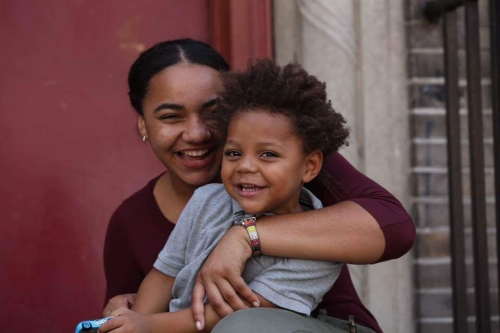 Nearly
Nearly 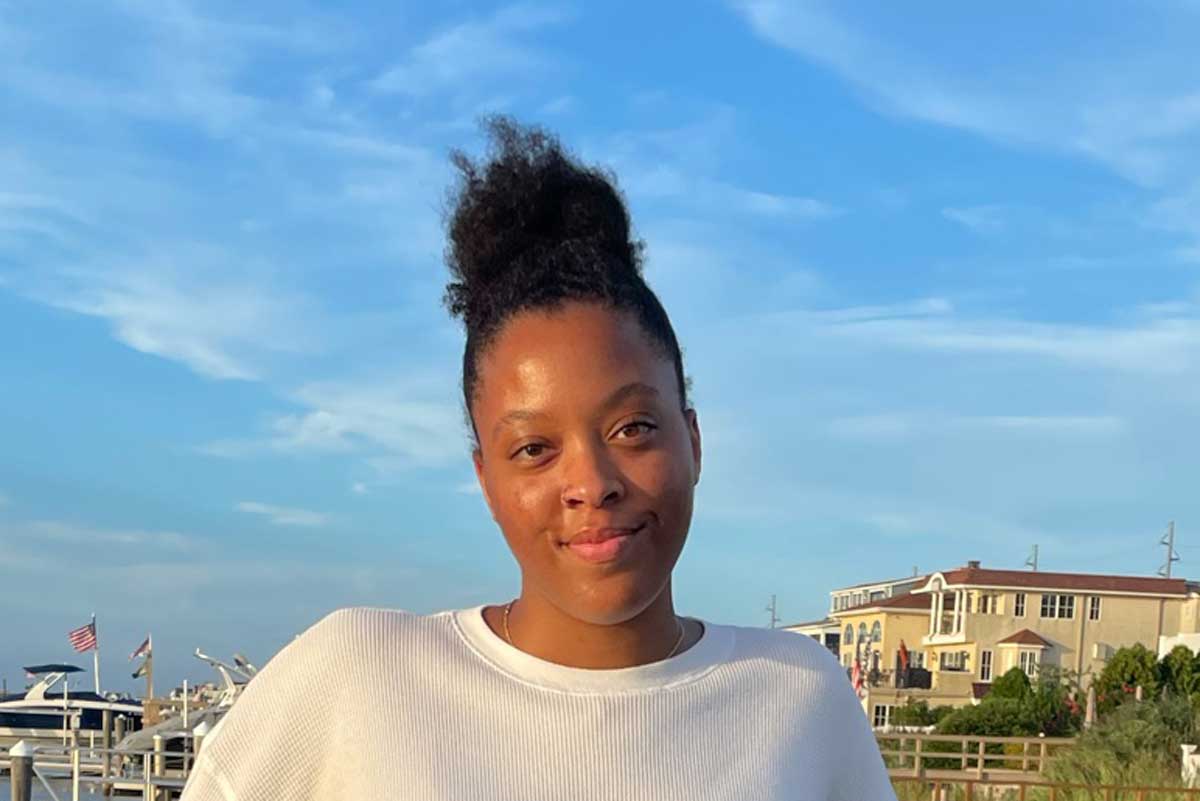

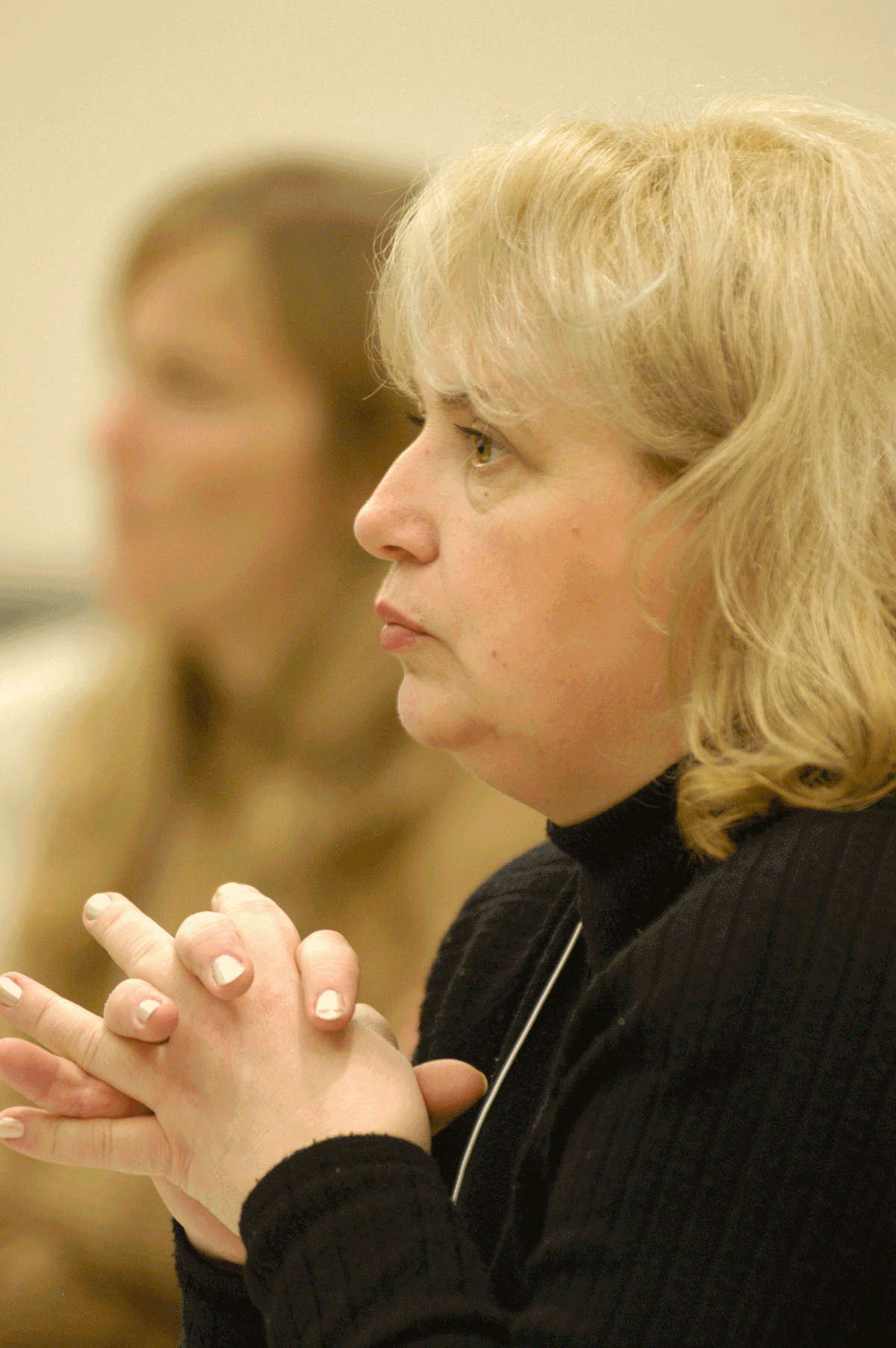


 , Ph.D., is a research scientist at the Wellesley Centers for Women studying
, Ph.D., is a research scientist at the Wellesley Centers for Women studying 



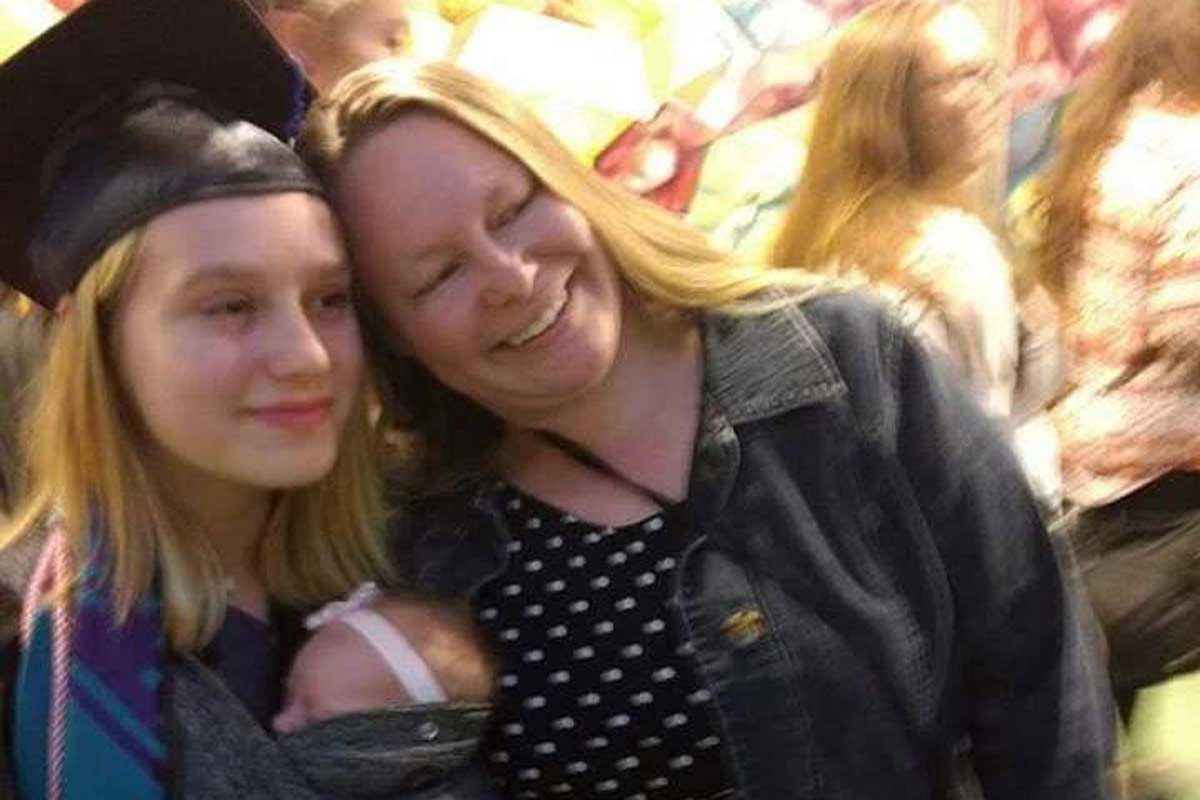
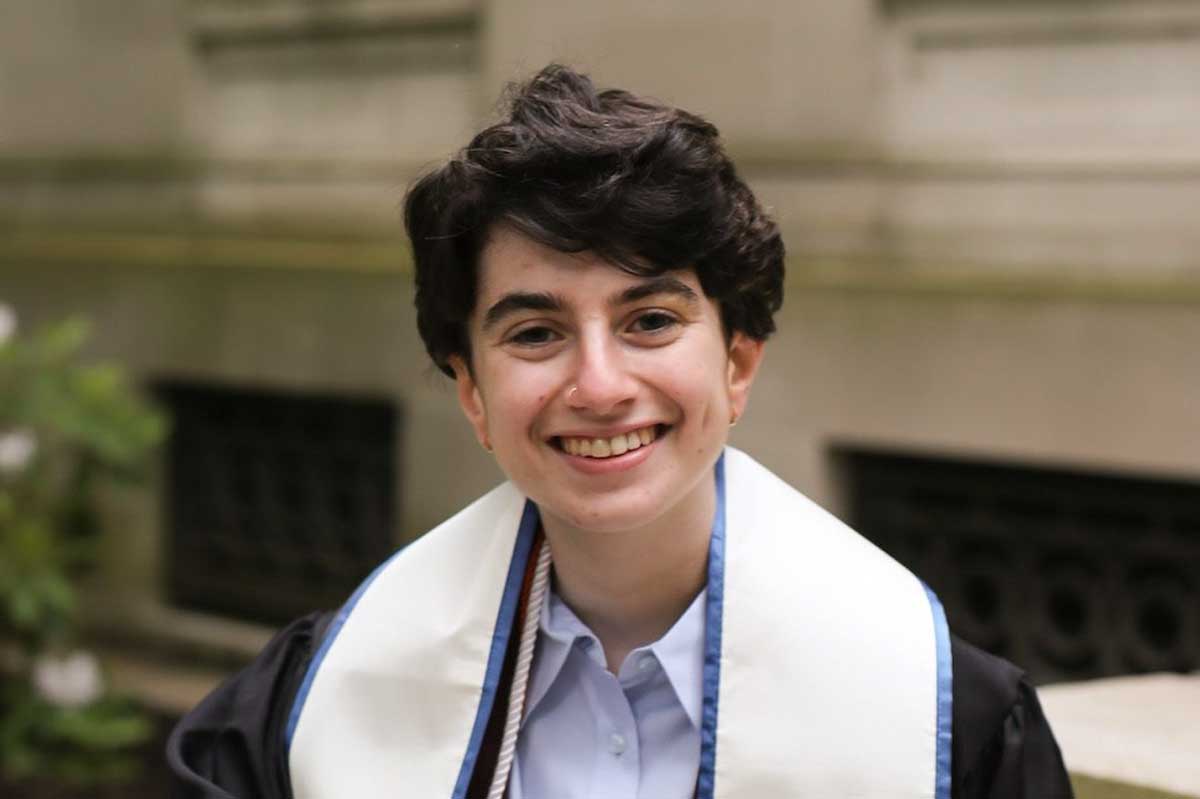
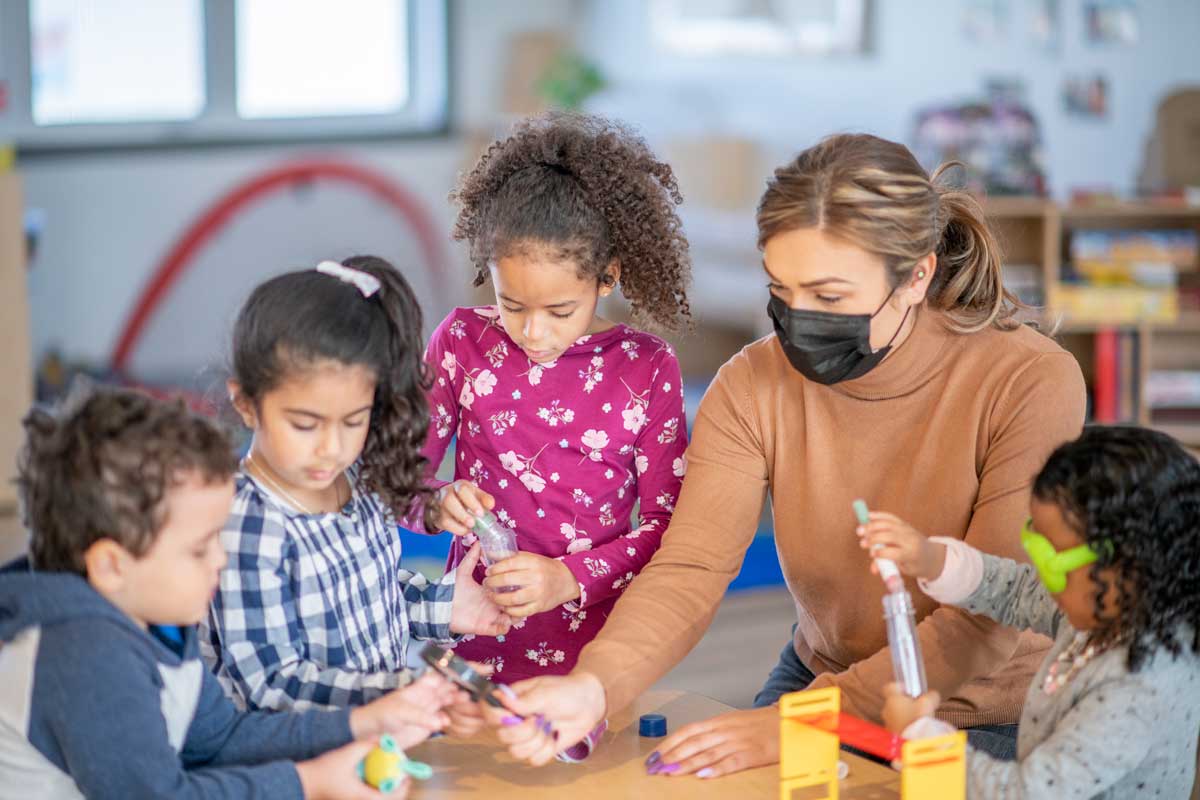
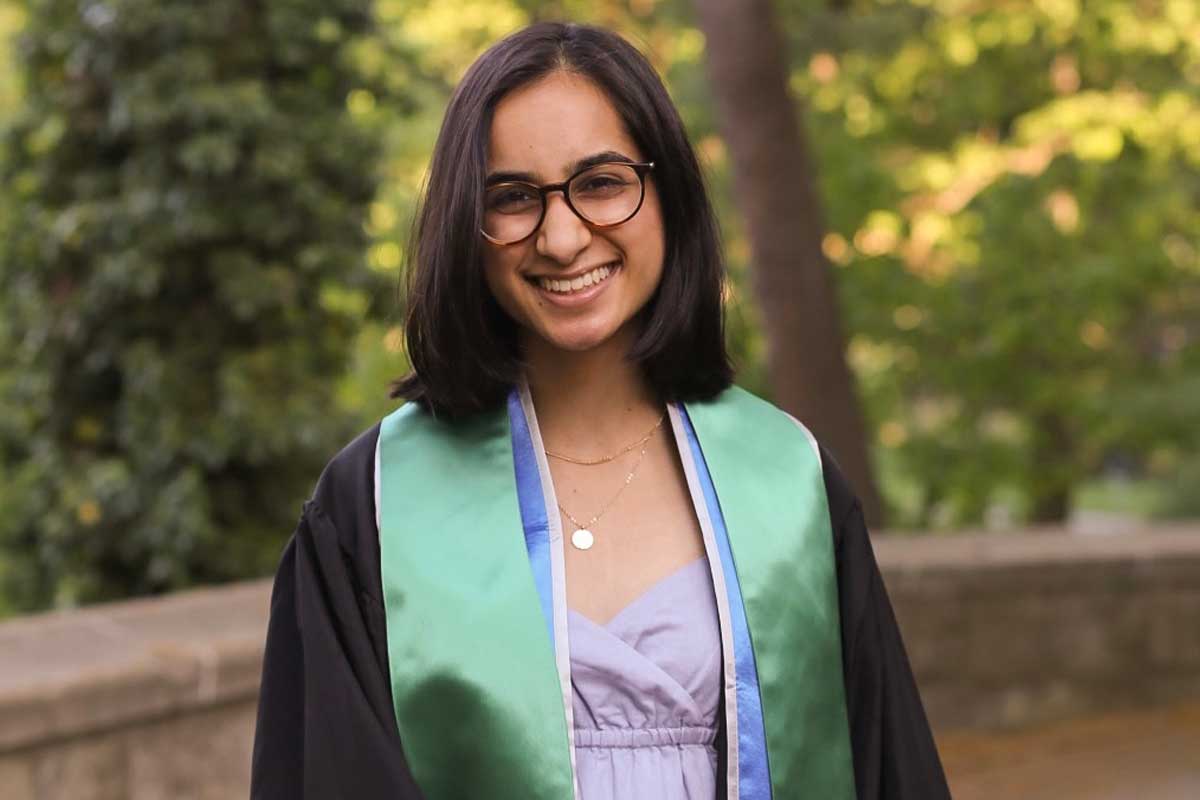
 Critical race theory has become the latest front in the culture wars. Depending on what you’ve read or what you’ve heard from politicians, you may be under the impression that critical race theory means talking about racism in any context, or that it means white people are inherently racist.
Critical race theory has become the latest front in the culture wars. Depending on what you’ve read or what you’ve heard from politicians, you may be under the impression that critical race theory means talking about racism in any context, or that it means white people are inherently racist. Senior Research Scientist
Senior Research Scientist  May is Mental Health Awareness Month. This year, it comes at a time when we have an increased focus on mental health due to the COVID-19 pandemic. Media reports have focused on the
May is Mental Health Awareness Month. This year, it comes at a time when we have an increased focus on mental health due to the COVID-19 pandemic. Media reports have focused on the  April is Sexual Assault Awareness Month and Child Abuse Prevention Month. Over the years, our work at WCW has addressed a wide range of critical issues related to these topics. One of the lesser publicly understood issues is the pressing problem of commercial sexual exploitation of children (CSEC) and teens, also known as sex trafficking.
April is Sexual Assault Awareness Month and Child Abuse Prevention Month. Over the years, our work at WCW has addressed a wide range of critical issues related to these topics. One of the lesser publicly understood issues is the pressing problem of commercial sexual exploitation of children (CSEC) and teens, also known as sex trafficking. On March 11, 2021, the House of Representatives passed a bill seeking to “create a special education scheme to support deserving students attending public tertiary institutions across Liberia. The Bill is titled “An Act to Create a Special Education Fund to Support and Sustain the Tuition Free Scheme for the University of Liberia, All Public Universities and Colleges’ Program and the Free WASSCE fess for Ninth and Twelfth Graders in Liberia, or the Weah Education Fund (WEF) for short. The bill when enacted into law, will make all public colleges and universities “tuition-free”. The passage of this bill by the Lower House has been met by mixed reactions across the country: young, old, educated, not educated, stakeholders, parents, teachers among others, have all voiced their opinions about this bill. While some are celebrating this purported huge milestone in the education sector, others are still skeptical that this bill may only increase access but not address the structural challenges within the sector. I join forces with the latter, and in this article, I discuss the quality and access concept in our education sector and why quality is important than access. I recommend urgent action to improve quality for learners in K-12.
On March 11, 2021, the House of Representatives passed a bill seeking to “create a special education scheme to support deserving students attending public tertiary institutions across Liberia. The Bill is titled “An Act to Create a Special Education Fund to Support and Sustain the Tuition Free Scheme for the University of Liberia, All Public Universities and Colleges’ Program and the Free WASSCE fess for Ninth and Twelfth Graders in Liberia, or the Weah Education Fund (WEF) for short. The bill when enacted into law, will make all public colleges and universities “tuition-free”. The passage of this bill by the Lower House has been met by mixed reactions across the country: young, old, educated, not educated, stakeholders, parents, teachers among others, have all voiced their opinions about this bill. While some are celebrating this purported huge milestone in the education sector, others are still skeptical that this bill may only increase access but not address the structural challenges within the sector. I join forces with the latter, and in this article, I discuss the quality and access concept in our education sector and why quality is important than access. I recommend urgent action to improve quality for learners in K-12.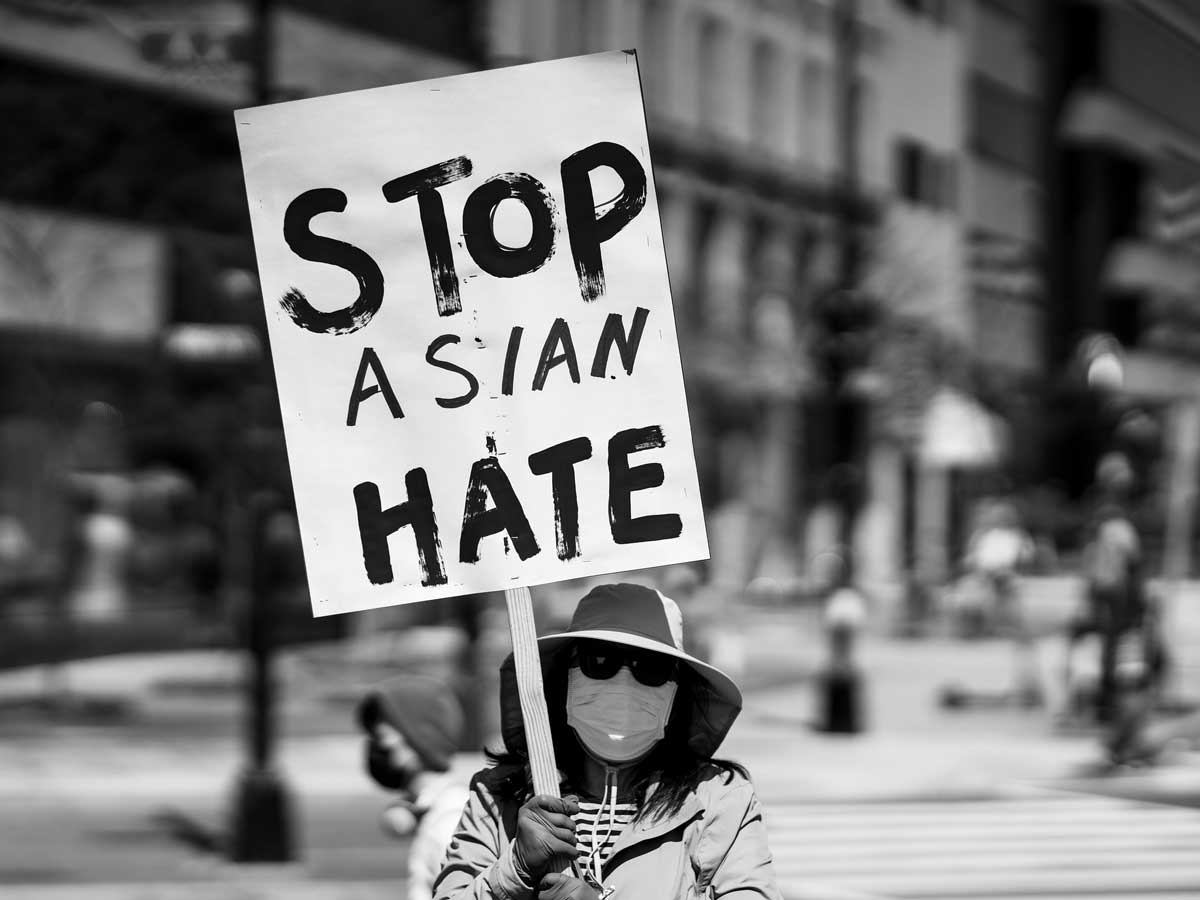
 As a new mother, you hold your baby in your arms, wishing for the best of the best for her. You may also be facing difficult career questions upon her arrival: When should you start working again? Should you be a stay-at-home-mom? Should you get a new job with a more flexible schedule? Will you be able to get promoted when you’re back at work? If you have a daughter, will she face the same choices in the future?
As a new mother, you hold your baby in your arms, wishing for the best of the best for her. You may also be facing difficult career questions upon her arrival: When should you start working again? Should you be a stay-at-home-mom? Should you get a new job with a more flexible schedule? Will you be able to get promoted when you’re back at work? If you have a daughter, will she face the same choices in the future?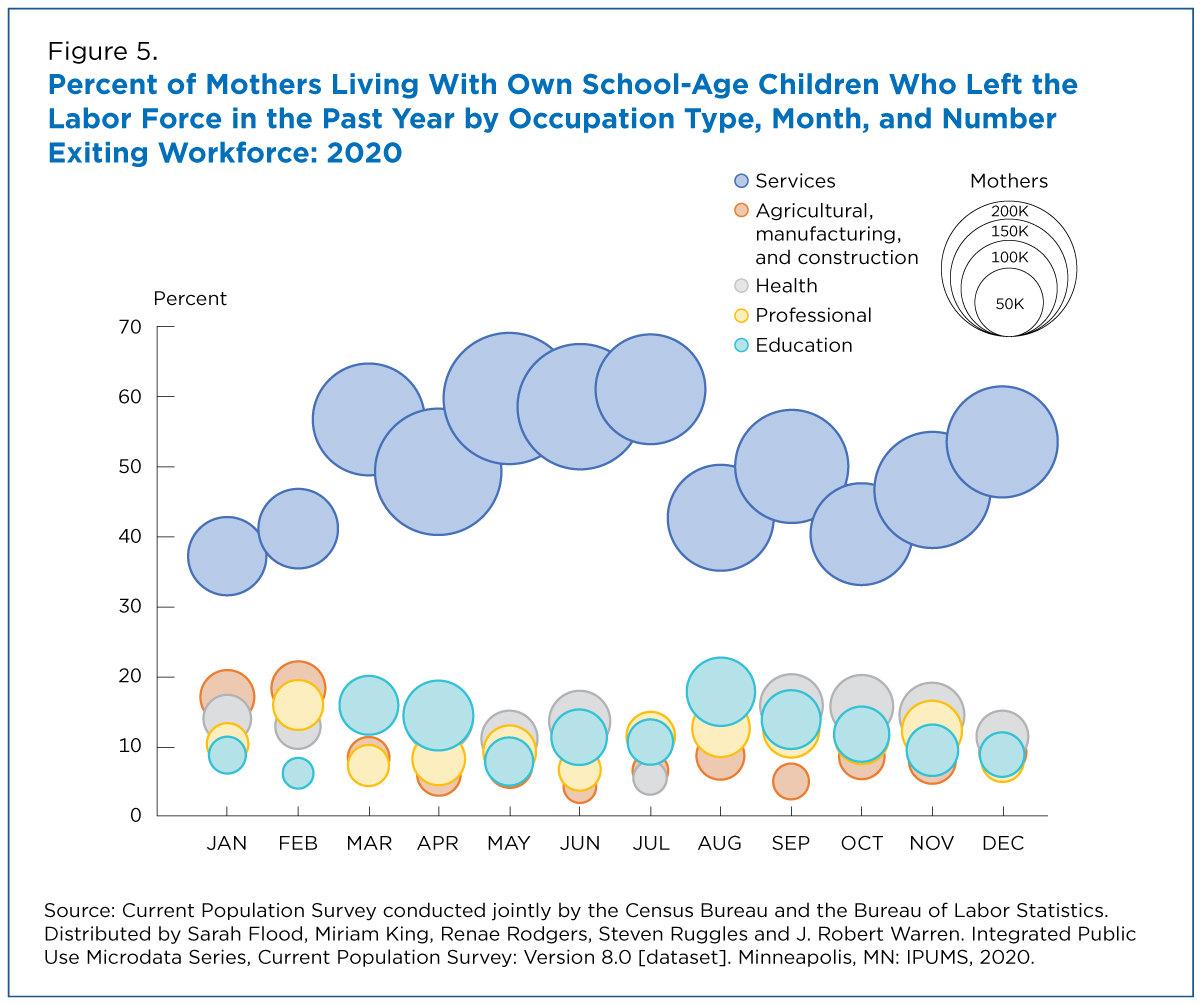
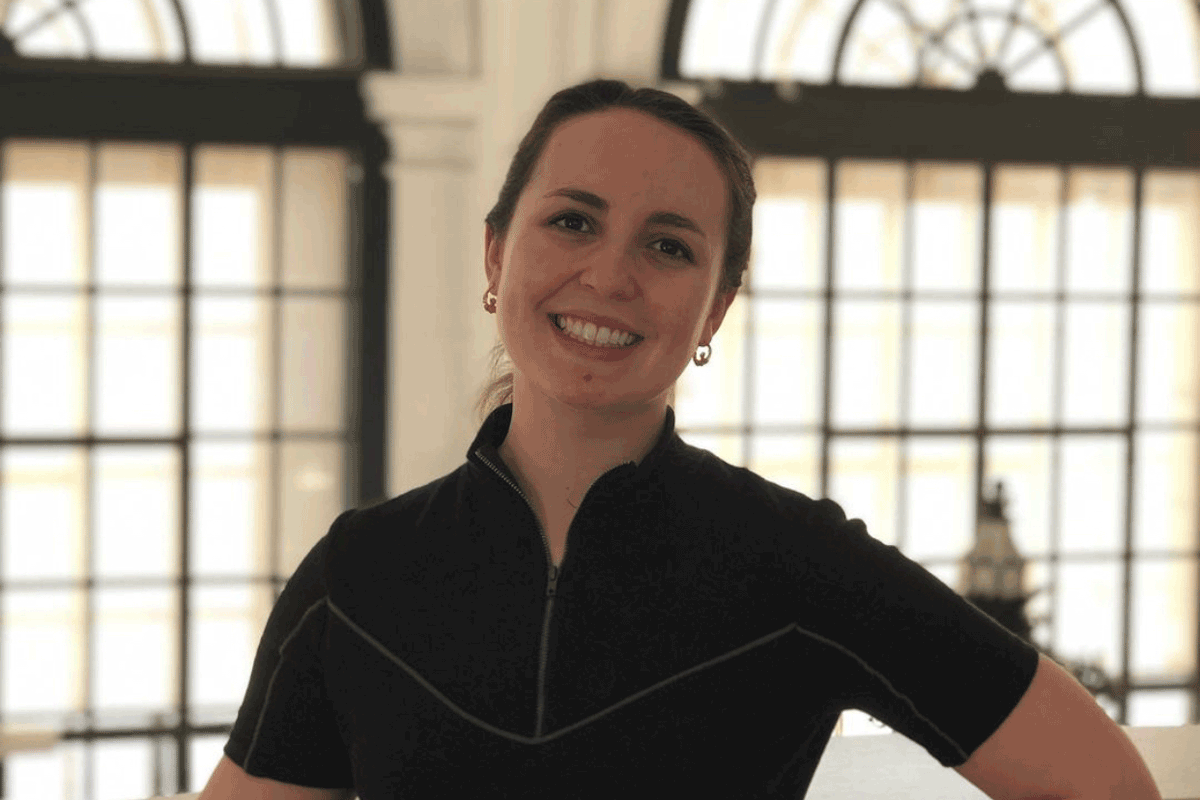 Sex education in the American public school system varies from state to state and from school district to school district. The lack of standardized sex education makes family education and conversations about sex and relationships all the more important for teenagers and their development. It is often assumed that parents are the default—that they are the only family members responsible for initiating these conversations. In my research conducted with WCW Senior Research Scientist
Sex education in the American public school system varies from state to state and from school district to school district. The lack of standardized sex education makes family education and conversations about sex and relationships all the more important for teenagers and their development. It is often assumed that parents are the default—that they are the only family members responsible for initiating these conversations. In my research conducted with WCW Senior Research Scientist 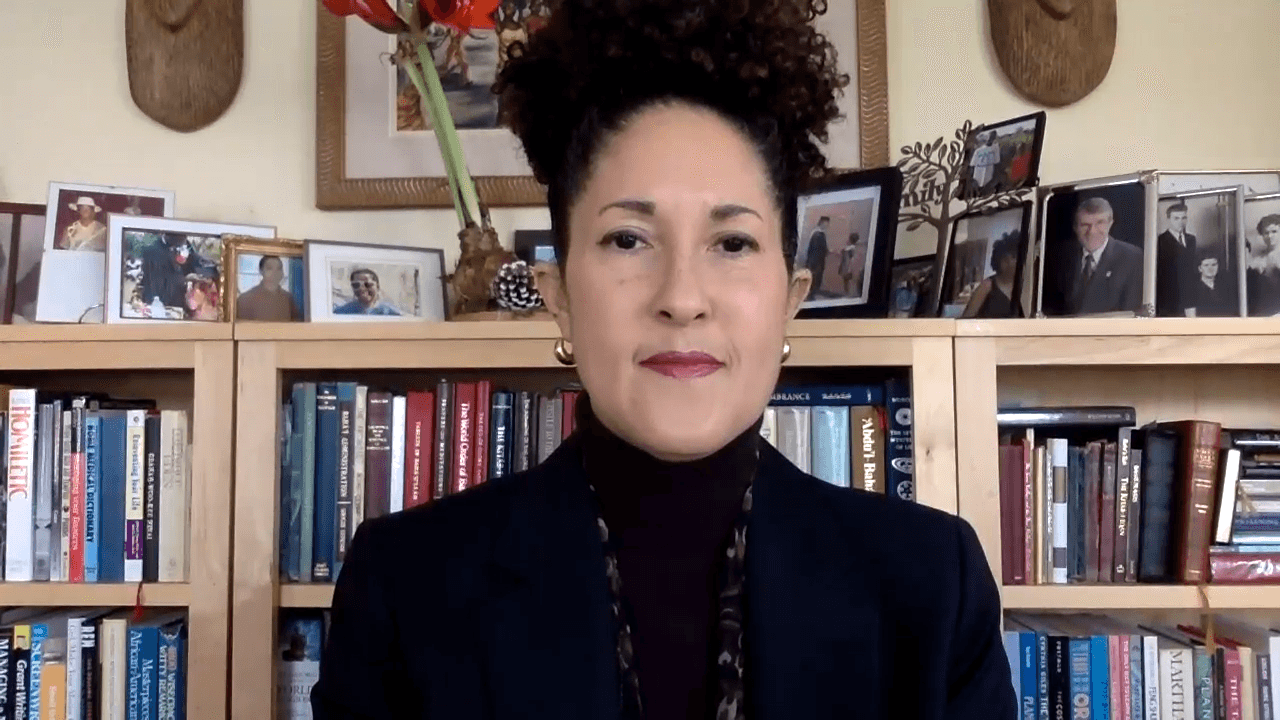
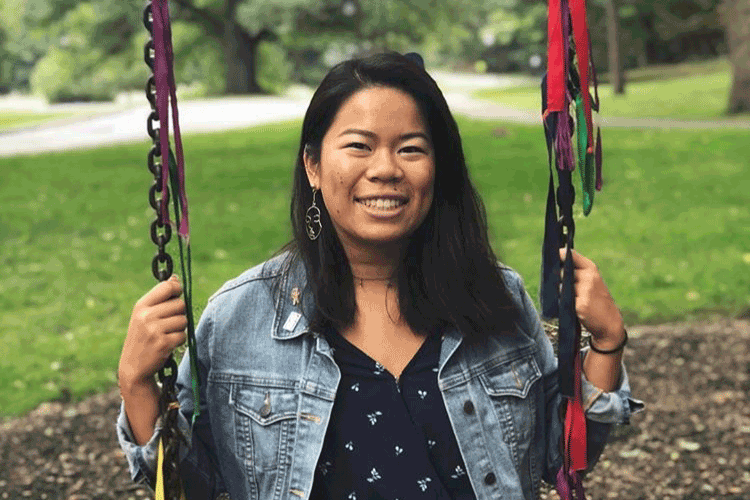 I spent the past semester working with Professor
I spent the past semester working with Professor  We at the Wellesley Centers for Women are starting our week with a sense of hope and possibility. We are proud to have a new
We at the Wellesley Centers for Women are starting our week with a sense of hope and possibility. We are proud to have a new  The pandemic has altered family life in unexpected ways.
The pandemic has altered family life in unexpected ways. 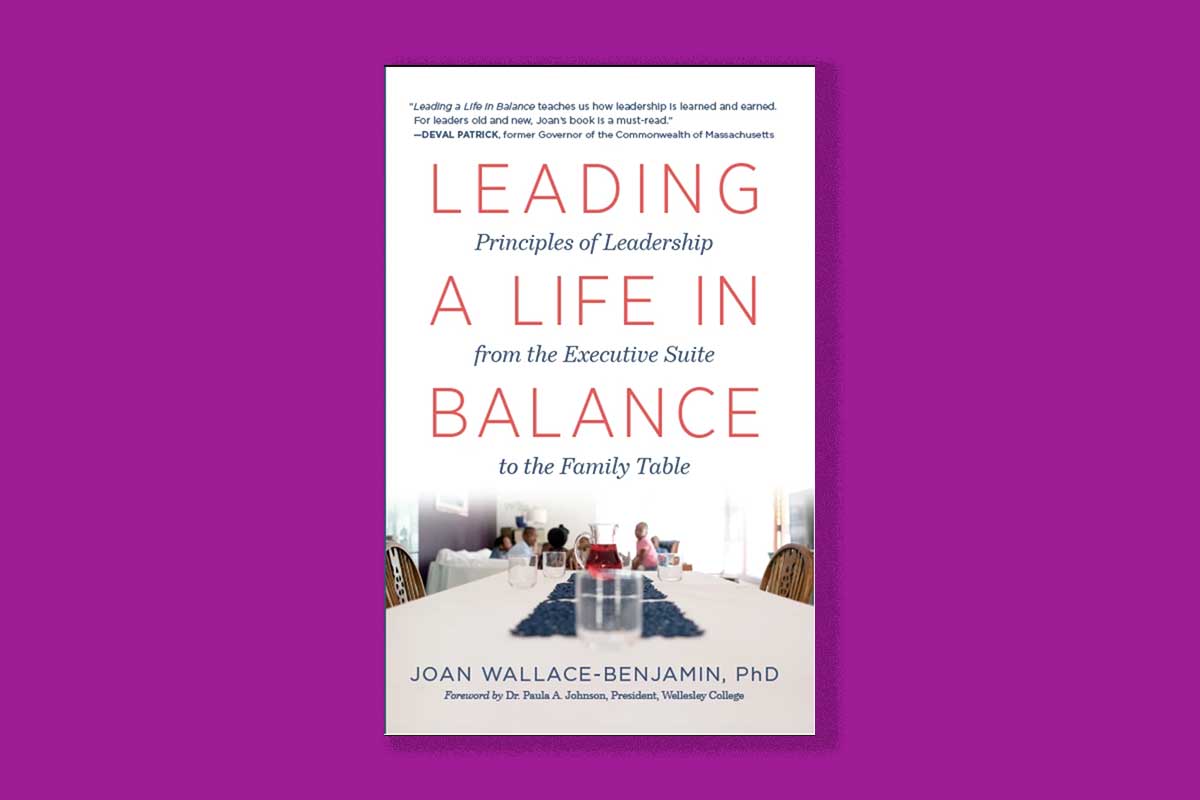 In my recently released book,
In my recently released book, 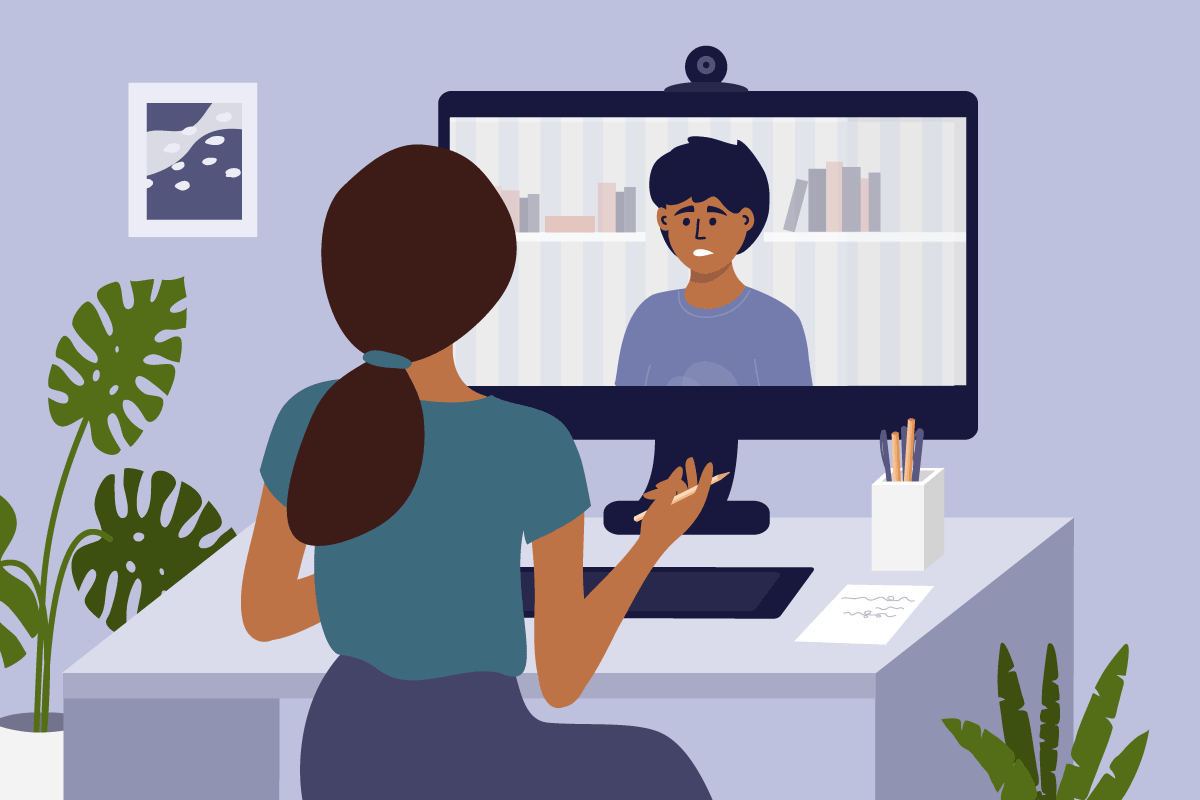 In 2018, I began a
In 2018, I began a 


 The callous killing of
The callous killing of  Sage Carson was raped by a graduate student in her sophomore year of college. In an article for
Sage Carson was raped by a graduate student in her sophomore year of college. In an article for  I never knew that I would have the opportunity to do social science research as an undergraduate until I got to Wellesley College. Towards the end of my first year, with my academic interests starting to gravitate toward Sociology and South Asia Studies, I knew I wanted to connect the concepts I was learning in the classroom to action-oriented research that produced tangible results for communities that I cared about. Through the helpful guidance of my peers, professors, and mentors, I discovered that I could get that opportunity by working at the Wellesley Centers for Women.
I never knew that I would have the opportunity to do social science research as an undergraduate until I got to Wellesley College. Towards the end of my first year, with my academic interests starting to gravitate toward Sociology and South Asia Studies, I knew I wanted to connect the concepts I was learning in the classroom to action-oriented research that produced tangible results for communities that I cared about. Through the helpful guidance of my peers, professors, and mentors, I discovered that I could get that opportunity by working at the Wellesley Centers for Women. The challenges of isolation and loneliness have become apparent over the past several months of social distancing. Not only are we physically separated from our friends and extended families, but we’re concerned about their health and wellbeing as well as our own. We may be juggling childcare, homeschooling, and our own work. Or we may be wondering how we’ll support ourselves through this. We may know those who are sick, or who are high-risk, or who are essential workers putting themselves at risk for our sake. We may have lost people close to us. And we may feel powerless to do anything.
The challenges of isolation and loneliness have become apparent over the past several months of social distancing. Not only are we physically separated from our friends and extended families, but we’re concerned about their health and wellbeing as well as our own. We may be juggling childcare, homeschooling, and our own work. Or we may be wondering how we’ll support ourselves through this. We may know those who are sick, or who are high-risk, or who are essential workers putting themselves at risk for our sake. We may have lost people close to us. And we may feel powerless to do anything. Last year on Mother's Day, I was driving through the Rocky Mountains, on my way from Oregon to Maine where my life was about to change forever. It was the first Mother's Day I had spent without my kids since they were born, and the first Mother's Day since my own mother had passed away. I yearned to call her to share the news of my latest adventure, as I always had during our frequent long-distance phone chats, but I knew I couldn’t. The following week, my daughter would bring my granddaughter into the world on the southern coast of Maine. The transcontinental journey I was on would end with the newest love of my life joining our family.
Last year on Mother's Day, I was driving through the Rocky Mountains, on my way from Oregon to Maine where my life was about to change forever. It was the first Mother's Day I had spent without my kids since they were born, and the first Mother's Day since my own mother had passed away. I yearned to call her to share the news of my latest adventure, as I always had during our frequent long-distance phone chats, but I knew I couldn’t. The following week, my daughter would bring my granddaughter into the world on the southern coast of Maine. The transcontinental journey I was on would end with the newest love of my life joining our family. It is the spring of 2020, and my senior year at Wellesley College is not at all what I imagined it would be like. Before concerns about COVID-19 led
It is the spring of 2020, and my senior year at Wellesley College is not at all what I imagined it would be like. Before concerns about COVID-19 led  This
This  This
This  Hospitals and universities are facing challenges that many have never seen before as they respond to COVID-19. Universities are
Hospitals and universities are facing challenges that many have never seen before as they respond to COVID-19. Universities are  A woman graduates from college and starts her first job, earning about the same as the male colleague who sits next to her. She gets promoted a few times, her salary increases, and in her late 20s, she gets married. Her husband gets a job offer in a new city, they move, and she takes a slightly lower-paying job. In her early 30s, she has a baby, and then another baby in her mid-30s. She decides to cut back her hours (and thus her pay) in order to spend more time with her children.
A woman graduates from college and starts her first job, earning about the same as the male colleague who sits next to her. She gets promoted a few times, her salary increases, and in her late 20s, she gets married. Her husband gets a job offer in a new city, they move, and she takes a slightly lower-paying job. In her early 30s, she has a baby, and then another baby in her mid-30s. She decides to cut back her hours (and thus her pay) in order to spend more time with her children.  During this unprecedented time, our work at the Wellesley Centers for Women towards gender equality, social justice, and human wellbeing has taken on new meaning. As a society, we have become newly aware of just how fragile and precious human wellbeing is. And as an organization, we have been reminded of how deeply we care about the physical and mental wellbeing of our community — our research scientists, project directors, administrative staff, and supporters like you — as well as the larger global community to which we all belong.
During this unprecedented time, our work at the Wellesley Centers for Women towards gender equality, social justice, and human wellbeing has taken on new meaning. As a society, we have become newly aware of just how fragile and precious human wellbeing is. And as an organization, we have been reminded of how deeply we care about the physical and mental wellbeing of our community — our research scientists, project directors, administrative staff, and supporters like you — as well as the larger global community to which we all belong. In 2019, Melissa Morabito, Ph.D.,
In 2019, Melissa Morabito, Ph.D., 